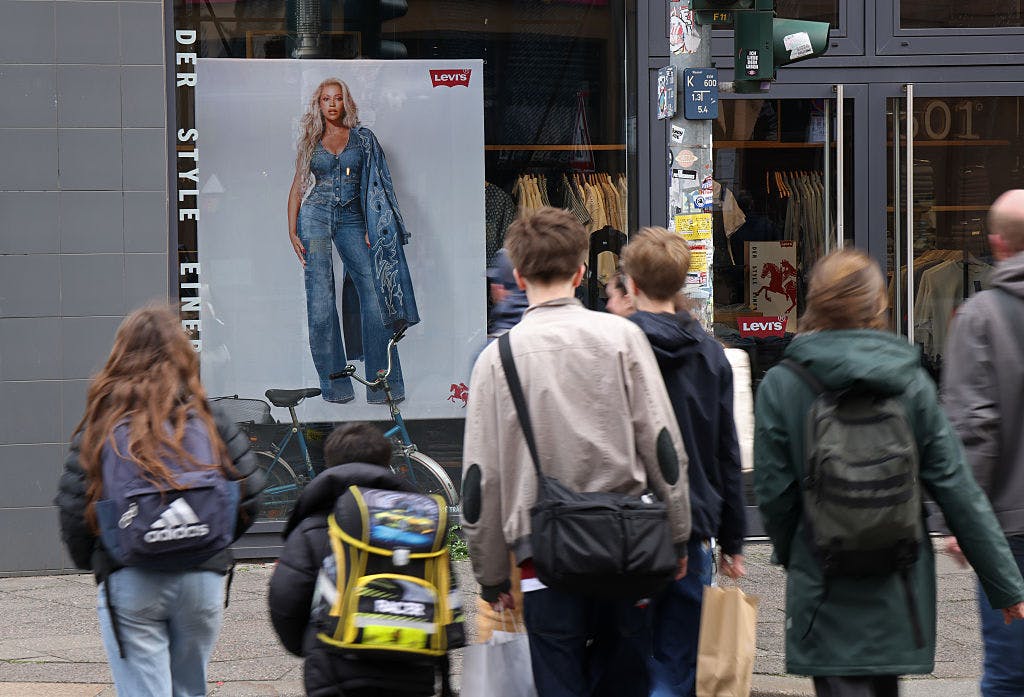Levi’s says tariffs will have minimal impact on margins this quarter
The denim giant also topped Q1 earnings estimates thanks to a campaign-fueled demand boost.
Levi’s said it topped Q1 earnings and downplayed the effect of tariffs on its margins, but the stock couldn’t hold on to early gains Tuesday morning.
Shares, which had popped as much as 16% in early trading, recently declined 3%.
Levi’s, which dropped the results after the bell Monday, reported quarterly adjusted earnings per share of $0.38, topping the $0.28 forecast from FactSet and the company’s previous guidance. While revenue came in below forecasts at $1.5 billion for the quarter, the Levi’s signature brand saw an 8% sales jump. Demand was fueled by its buzzy “REIMAGINE” campaign with pop superstar Beyoncé — which racked up over a billion impressions and $65 million in estimated earned media.
Despite ongoing tariff tensions, Levi’s said most of its spring and early summer product is already stateside and that it expects “minimal impact” on margins this quarter. Levi’s earns over half its revenue from outside the US and has suppliers in over a dozen countries, including China, Vietnam, Sri Lanka, and Turkey. Levi’s also said it plans to take a “very surgical” approach to price hikes when necessary.
“I’m confident in our ability to navigate these rapidly evolving times. As an iconic brand with more than 170 years of history, we’ve weathered challenging times before,” CEO Michelle Gass said on the company’s earnings call. “We have scale with an agile global supply chain, deep vendor relationships, and a strong balance sheet, all of which position us well to navigate this time of uncertainty.”
For the full year, Levi’s expects 3.5% to 4.5% revenue growth, and raised its operating profit margin outlook to 11.4% to 11.6% from 10.9% to 11.1%.
JPMorgan joined in the optimism on Tuesday, upgrading Levi’s stock to “overweight” (or buy) from “neutral,” despite cutting its price target to $17 from $19. Analysts highlighted the brand’s strong global reach, reliable supply chain, and steady demand growth. They also pointed out Levi’s strong appeal with the key 18-30 crowd, who are shopping more frequently and spending more per transaction.
Levi’s stock is down by more than a third over the past year.
